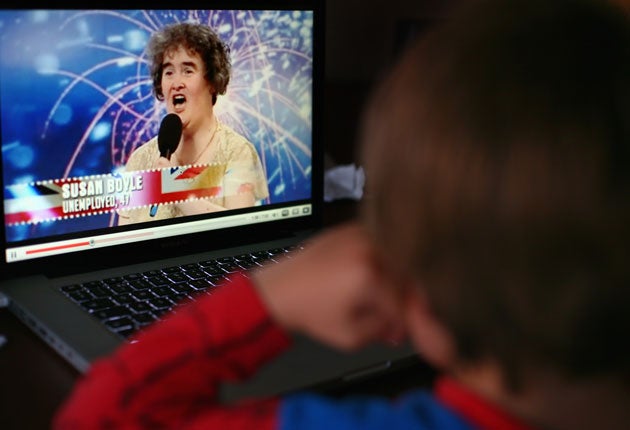TV dead? Far from it, we're keeping all the others alive
Melvyn Bragg is off and 600 staff are being sacked but ITV will survive, says its commercial chief Rupert Howell

British television finds itself in turbulent times, facing a perfect storm of increased competition, declining advertising revenues and onerous and outdated industry regulation. Commercial broadcasters are particularly hard hit with Channel 4 announcing more cuts to its programming budgets last week and ITV undertaking painful cost-cutting across its business.
However, despite being in the midst of the deepest advertising recession on record, and despite the hype and hyperbole to the contrary, rumours of the death of television are greatly exaggerated. People have never wanted to watch TV more and there have never been so many ways to watch it or ways for brands to make use of its – unmatched power. Last year was a record year for TV viewing, with the average person spending over a day a week watching. TV accounts for 54 per cent the time we spend with media, according to the Institute of Practitioners in Advertising. Nothing else comes close. Radio takes 27 per cent, print 6 per cent, and the internet – often falsely held up as threat to TV – claims just 13 per cent of the average day. Even among young people, these figures don't shift much.
As commercial director at ITV, I know more than most how hard our advertisers are working to ensure they survive this downturn. That can mean businesses holding back on investment decisions and looking for immediate, guaranteed payback. Advertisers know what works for them and the search for value is more intense than ever. Businesses are focusing on their core products and cutting back on spend that will not deliver a guaranteed return. So, away from the fray, where should advertisers really be investing to deliver this payback?
Time and again we hear the received wisdom that online is on the money. It is accountable and highly measurable so it makes advertising sense right? Well, yes and no. Online advertising is important but only part of the story and, while it might be uncool, the other part of the story is that TV remains the only place advertisers can build brands, drive consumer response and deliver competitive return on investment in a significant way.
Research by PwC has shown that, on average, TV advertising returns 4.5 times what you invest. No other form of advertising is so effective. A huge part of online response and search is directly driven by TV ads but is often wrongly attributed. It isn't an experiment I'd like to try, but take TV away... and the internet, creatively and commercially, would go hungry if not starve.
I would say that wouldn't I? Yes, but that doesn't stop it being true. Let's look at the evidence. Take the extraordinary success so far of this year's Britain's Got Talent. Like other shows where true fans emerge – be it sport, soap, drama, US drama, entertainment or lifestyle programming – it is a shared televisual experience that unites people, gets people talking and is the catalyst for further viewing and for integrated advertising.
After airing on ITV1, Britain's Got Talent can be viewed, with greater or lesser detail, on ITV2, itv.com or on-demand, as official or unofficial content on YouTube, or on the front pages of our national newspapers, ultimately driving more people to watch the next episode. In short, it's TV that makes these shows famous, feeding the online frenzy which in turn drives people back to the main event.
Research also shows that consumers respond with much greater positivity to online advertising when it is professionally produced rather than user-generated content. That's good news for broadcasters as we have the killer content for advertisers to invest around. TV content is driving people to online viewing in huge numbers. In the first three months of 2009, video views on ITV.com are up over 150 per cent on the first quarter of 2008. And that is before Britain's Got Talent and the Susan Boyle phenomenon.
The combination of TV and online is just about as perfect a marketing marriage as you can get. Just witness the number of online brands spending their advertising money on telly. Telly has delivered huge results for brands like comparethemarket.com – and done a lot for meerkats, too. Far from sounding the death knell of traditional broadcasting, it is the quality of TV content which creates the range of advertising opportunities away from the box in the corner of the room.
The cost of television advertising peaked in 2000, has been steadily falling since the start of the decade. In real terms, it's now cheaper than it was 20 years ago. TV is no longer the expensive medium it was once perceived to be, nor is it a medium in decline – viewing has been stable for two decades. Over the last couple of years viewing has been increasing. Don't mistake a temporary cyclical downturn for a permanent structural decline. We are under no illusion that the tough times we are in may be extended but the recession will end, like all others before it.
Rupert Howell is commercial director of ITV
Subscribe to Independent Premium to bookmark this article
Want to bookmark your favourite articles and stories to read or reference later? Start your Independent Premium subscription today.

Join our commenting forum
Join thought-provoking conversations, follow other Independent readers and see their replies